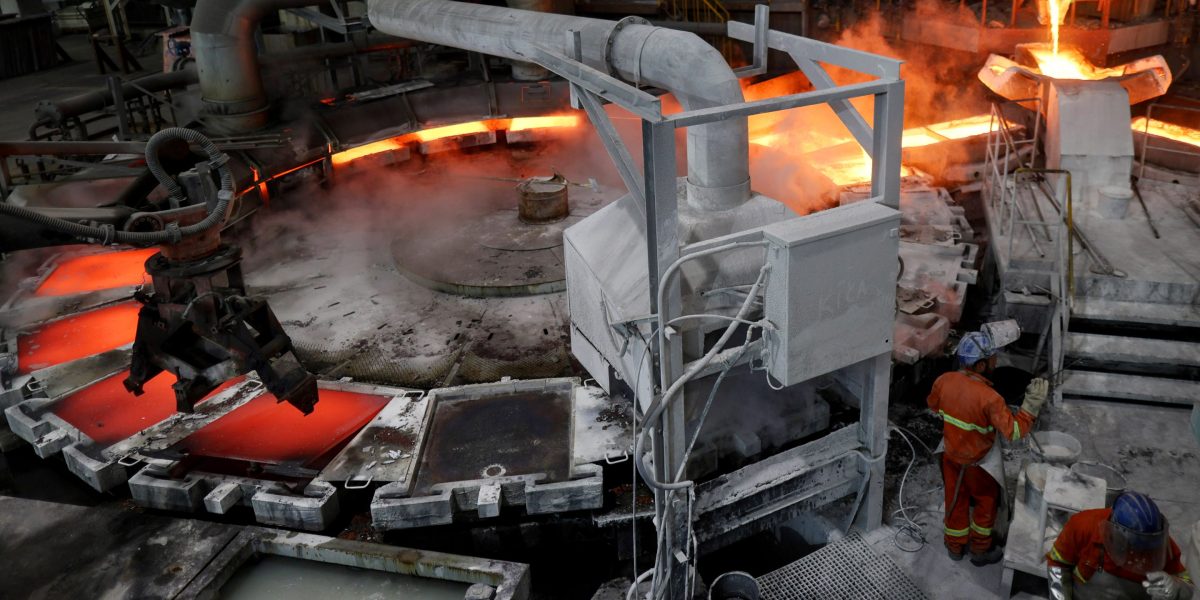

“It’s almost irrational, the expectation that we can electrify everything and have all the materials that we actually need for batteries and electric vehicles…by 2030, or 2035,” M. Stephen Enders, a professor at the Colorado School of Mines and a 48-year veteran of the mining industry, told Fortune. “We can’t supply the metals fast enough.”
Copper is an essential component in electric vehicles because of its conductive properties: a typical EV requires over 132 pounds of copper, as opposed to just 52 pounds for the average gas-powered car. As the auto industry continues to electrify, it’s driving an exponential increase in copper demand that the notoriously slow, long-term oriented mining industry simply isn’t capable of meeting.
New research shows that in order to meet policymakers’ EV and green energy hopes, we will need to mine more than twice as much copper over the next 25 years as has been mined throughout all of human history up to 2018.
“It is highly unlikely that there will be sufficient additional new mines to achieve 100% EV by 2035,” wrote Cornell University professor Lawrence Cathles and University of Michigan professor Adam Simon in a recent report. Reaching that target “requires unprecedented rates of mine production.”
Given that the average mine requires decades to build, it’s impossible to ramp up production overnight. And copper mining isn’t just time-consuming, it’s also expensive—meaning that it’s tough for new entrants or smaller-capitalized companies to rush into the market.
“Once you’ve got a discovery, the time you have to [wait until] first production is… 23 years,” Enders said. “It takes a long time for this to happen. The capital cost to build a project ranges…I’ve seen it as high as $7 or $8 billion.”
That means to hit long-term targets—or even come close to analysts’ expectations for near-term copper demand—mining companies have no time to lose. Cathles and Simon emphasized that governments have an important role to play in promoting domestic mining investment. Environmental regulations and land ownership laws in the United States make it one of the more expensive places to mine globally.
“It is important that copper exploration and mine development be encouraged, starting now. The EU and US should demonstrate on their own territories that increasingly responsible mining can be carried out and thereby prove that they consider mining to be important and are willing to do their share of it,” reads the report.
Automakers looking for a way out are buoyed by hopes of technological developments that could circumvent a need for copper. Researchers have proposed using solid-state batteries, which don’t require as much copper and other minerals in short supply, for electric vehicles instead of conventional lithium batteries—but large-scale production is still years away.
“Copper is the mineral most fundamental to the human future,” reads the report. “Mining must be recognized as essential.”















